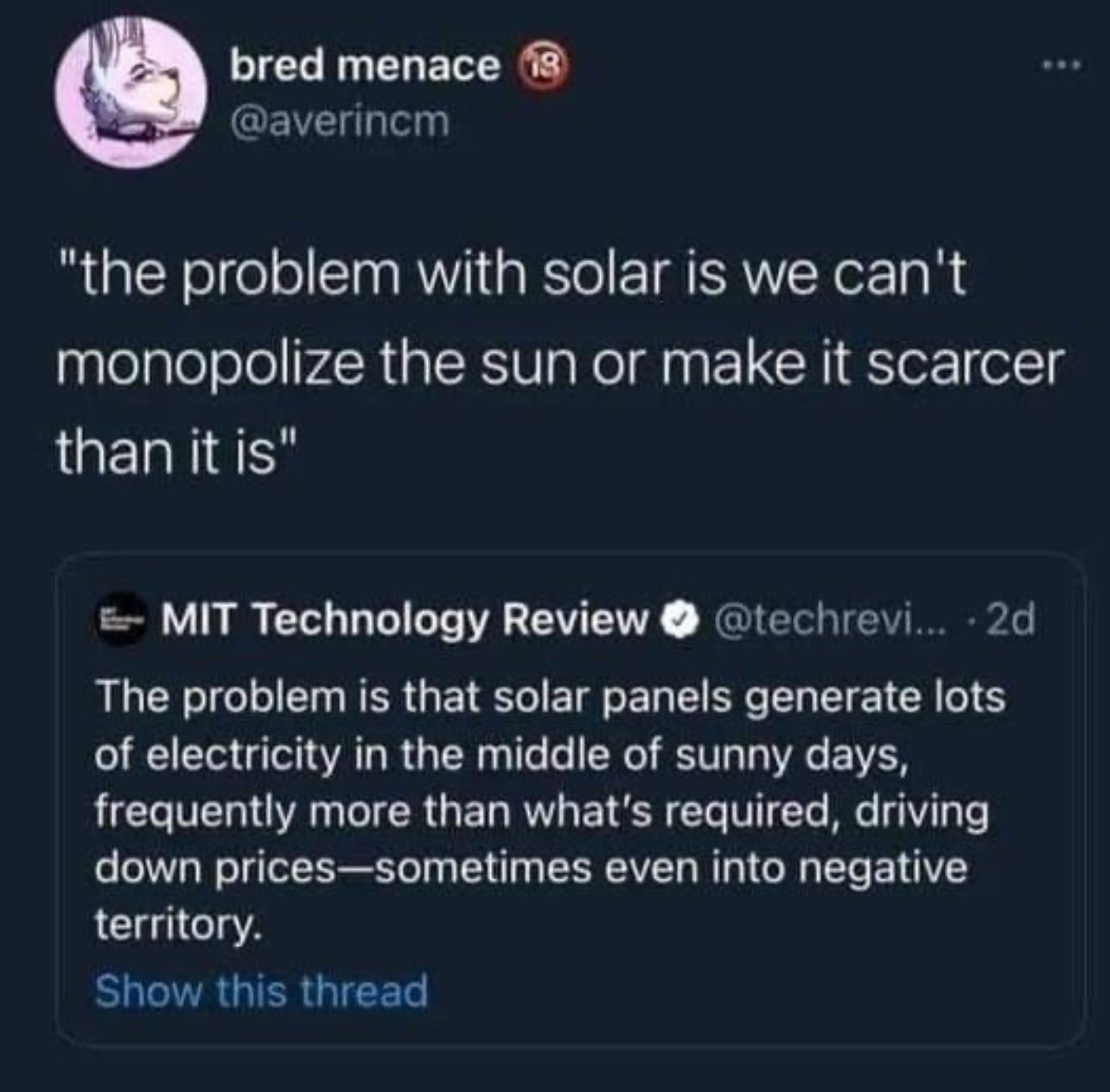this post was submitted on 02 Oct 2024
1693 points (95.6% liked)
Microblog Memes
5885 readers
4440 users here now
A place to share screenshots of Microblog posts, whether from Mastodon, tumblr, ~~Twitter~~ X, KBin, Threads or elsewhere.
Created as an evolution of White People Twitter and other tweet-capture subreddits.
Rules:
- Please put at least one word relevant to the post in the post title.
- Be nice.
- No advertising, brand promotion or guerilla marketing.
- Posters are encouraged to link to the toot or tweet etc in the description of posts.
Related communities:
founded 1 year ago
MODERATORS
you are viewing a single comment's thread
view the rest of the comments
view the rest of the comments

Call me stupid, but why don't they just charge enough to cover costs and a bit of profit? The current pricing model is broken if you can't run a solar plant profitably.
It takes hours to days to start, stop, or change nuclear and coal generation rates. You can't just turn it on and off as needed. If you need coal or nuclear to meet overnight demand, you have to leave it running during the day as well. If you need 2MW of power overnight and 5MW during the day, you can only add 3MW of solar generation before you are putting too much power on the grid. If your solar puts out 5MW, you have to find out something to do with the extra 2MW that your nuclear plant needs to output continuously.
If you size your solar plants to produce 3MW in the middle of winter, then in summer they are putting out about 9MW. What can you do with the 6MW excess?
There is no single solution to manage every issue, but the single most important is "demand shaping". We need to reduce demands that can only be met with baseload generation. We need to move that demand to peak solar production times. We need to increase daytime demand to incentivize greater investment into solar.
Storage has to be a very distant second. Every 1 MW we time shift from night to day takes 2MW of load off the grid: 1MW to charge a storage plant, 1MW to discharge.
We need east/west transmission lines, shifting power from where the sun is up to where the sun is down. North America stretches over 4 hours of rotation. Californian solar plants are just waking up as East Coast plants peak.
We may need transmission lines over the poles, funneling power from where it can be generated to where it is needed.
We may need north/south intercontinental links across the equator, giving summer producers access to winter demand.